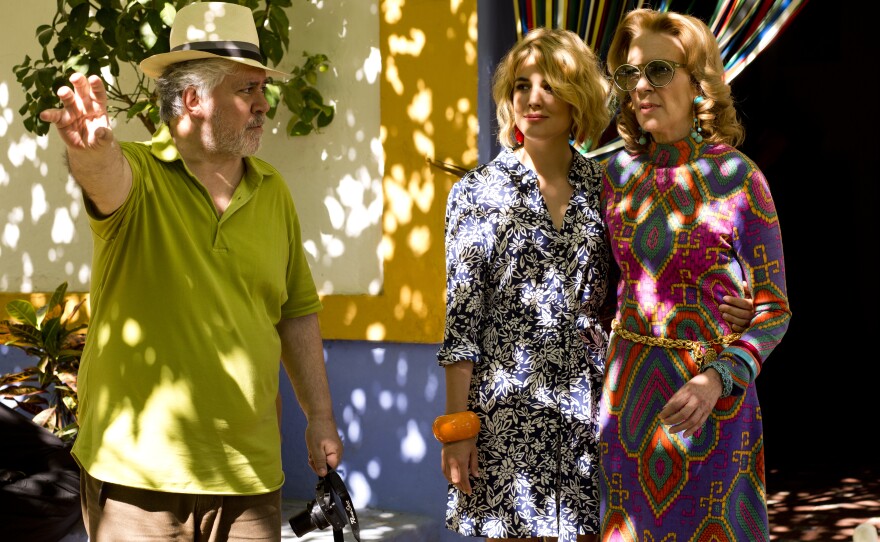Companion viewing
"Stella Dallas" (1937)
"Women on the Verge of a Nervous Breakdown" (1988)
"High Heels" (1991)
The Spanish film "Julieta" (opening Jan. 13 at Landmark's Hillcrest Cinemas, AMC La Jolla, and Angelika Carmel Mountain) has been selected as the official entry from Spain for this year’s Best Foreign Film Oscar.
Spanish filmmaker Pedro Almodovar has gone from audacious upstart in the 1970s to grand master in the new millennium. But two things have always fascinated him -- complicated women and lush melodrama.
His new film "Julieta" showcases both in a delicious tale of secrets and broken hearts, grief and guilt. The film has its roots in American women’s pictures like "Stella Dallas" and "Mildred Pierce." But instead of giving us a mother who sacrifices all for her daughter, Almodovar gives us a mother whose daughter slips out of her life.
"Julieta" is adapted from a series of stories by Canadian Nobel laureate Alice Munro and is told through a series of flashbacks. Chronologically, the story begins with Julieta (Adriana Ugarte) living in Madrid with her daughter Antía. They are both suffering grief over the loss of Xoan (Daniel Grao), Antía’s father and Julieta’s husband. But the death becomes a wedge between mother and daughter. When Antía turns eighteen she vanishes from her mother's life without any explanation.
Julieta is devastated. But after attempts to find her daughter fail she decides to erase all memories of Antía from her life. She gets rid of anything that will remind her of her daughter and moves to a new place. But in an Almodovar film, the past has a way of coming back to haunt people.
In the press notes, Almodovar said, "'Julieta' is about the mother’s struggle to survive uncertainty. It's also about fate, about guilt complexes and about that unfathomable mystery that leads us to abandon the people we love, erasing them from our lives as if they had never meant anything, as if they had never existed."
Almodovar's films are a beguiling mix of brash originality and a deep love for cinema itself. His films draw on the tradition of the women's pictures of the 1940s and 1950s made by directors such as Douglas Sirk, Max Ophuls, or William Wyler. These ripe melodramas focused on women characters and their often difficult emotional journeys. Almodovar also reveals the influence of Alfred Hitchcock in terms of how he often spins his films as twisty narratives full of mystery and tension.
But despite these influences, every Almodovar film is also uniquely his own. "Julieta" lacks the wild humor and over the top flair of such earlier films as "Women on the Verge of a Nervous Breakdown" and "High Heels," but instead serves up a more restrained and mature melodrama about a woman trying to address a deep emotional loss.
As with all Almodovar's films, the acting is stellar. He has two actresses playing Julieta, Adriana Ugarte as what he calls Earlier Julieta and Emma Suárez as Later Julieta. There is a seamless quality to the two performances with Ugarte capturing the early joys of Julieta and Suarez embodying much of her sadness. Both actresses are riveting.
"Julieta" (in Spanish with English subtitles) is more muted than Almodovar’s best work but it boasts stunning performances, a complex narrative structure, and opulent emotions.






